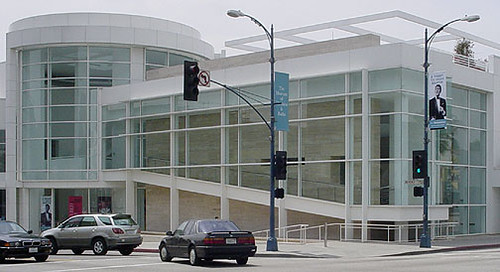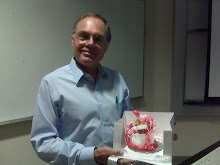Paradigm Shift
 MC101s have to RSVP by phone or email in order to go to Saturday's "Creating Careers in Television" seminar at the Museum of Television & Radio in Beverly Hills.
MC101s have to RSVP by phone or email in order to go to Saturday's "Creating Careers in Television" seminar at the Museum of Television & Radio in Beverly Hills.I can't recall if I've introduced the term Paradigm Shift in MC101 this semester. Well, if it hasn't come up yet in class, let me define it for you. A paradigm is a framework for thinking about something. Once it was believed the sun, the planets and the stars revolved around the Earth. Then Nicolaus Copernicus introduced the idea that the Earth revolved around the Sun and not vice-versa. That's a paradigm shift. It's a revolutionary way of thinking about something and, as Copernicus found out, a lot of people find paradigm shifts threatening and react accordingly. (Attempted paradigm shifts that are ultimately not successful tend to be written off as subversive or crackpot ideas.)
This scenario from the Museum of Media History predicts a paradigm shift in how we produce, consume and profit from news and information. The scenario is powerful and unsettling. But is it plausable? Will media (particularly news media) become much more participatory than it is today, with audience members routinely submitting their own content? Will the whole notion of mass media (newspapers and television networks and the like) be overthown by mass media platforms, which could include search engines and personal networking sites and shopping and information portals? Will it become increasingly impossible to build a mass audience to watch the same show or read the same article (no matter how talented the people creating it) if there are amateur-produced shows and articles that appeal exactly to each individual's tastes?
We had some good conversation over this one.



0 Comments:
Post a Comment
<< Home